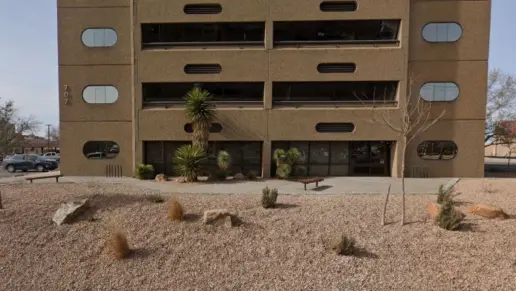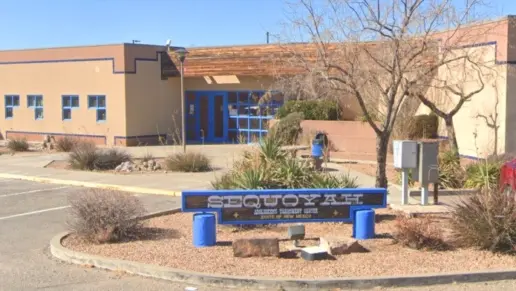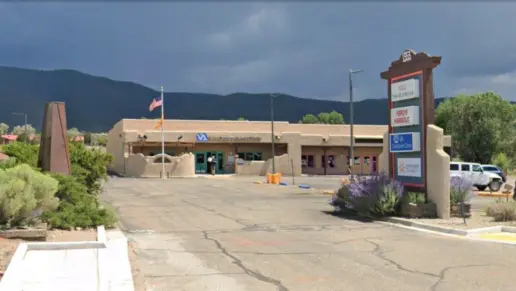About the Facility
Center for Family and Adolescent Research (CFAR) provides outpatient services for adolescents ages 12-17 years old who are dealing with substance abuse issues and depression. Services include individual, group and family therapy. Center for Family and Adolescent Research is located at Albuquerque, New Mexico.
Center for Family and Adolescent Research is part of the non-profit Oregon Research Institute (ORI) and provides state of art treatment for adolescents ages 13-17 years old who are dealing with behavioral issues including substance abuse and depression.
They are able to treat adolescents ages 13-17 years old.
All their programs are family-based research center and involve family participation.
Services include individual, group and family therapy. All services are provided by professional staff who utilize evidence-based therapy approaches.
 Treatment
Treatment
 Alcoholism
Alcoholism
Ranging from mild to severe, alcohol use disorder is a condition characterized by drinking to the point of causing harm or distress. Recovery from this alcohol addiction takes time and commitment. Alcohol rehab in New Mexico can provide the resources necessary to overcome alcoholism. Through detox, psychotherapy, and social supports, participants gain the skills they need to achieve and maintain sobriety.
 Drug Addiction
Drug Addiction
Each drug rehab in New Mexico offers unique amenities and treatment methods. Common aspects of treatment include group and individual counseling, recreational therapy, medication management, and healthy living. Aftercare is often provided to prevent relapse.
 Dual Diagnosis
Dual Diagnosis
In New Mexico, specialized dual-diagnosis addiction treatment programs prioritize comprehensive care for individuals with co-occurring substance use disorders and mental health conditions. These programs offer outpatient, inpatient, and partial hospitalization options. Evidence-based therapies, like cognitive behavioral therapy and medication-assisted treatment, in combination with skills training and recovery support groups, provide a comprehensive and holistic approach to address both disorders simultaneously. By addressing co-occurring disorders simultaneously, and under the same roof, treatment outcomes are drastically improved.
 Mental Health and Substance Abuse
Mental Health and Substance Abuse
In New Mexico, dual-diagnosis rehabs provide comprehensive care for individuals facing both mental health and substance abuse disorders. These specialized inpatient or outpatient programs integrate evidence-based therapies such as cognitive-behavioral therapy (CBT), dialectical behavior therapy (DBT), motivational interviewing, and group processing to address both aspects of your well-being. By the time you leave the program you’ll know how to reframe unhelpful patterns, have the skills to overcome relapse triggers, and improve your mental health.
 Opioid Addiction
Opioid Addiction
Opioid rehabs specialize in supporting those recovering from opioid addiction. They treat those suffering from addiction to illegal opioids like heroin, as well as prescription drugs like oxycodone. These centers typically combine both physical as well as mental and emotional support to help stop addiction. Physical support often includes medical detox and subsequent medical support (including medication), and mental support includes in-depth therapy to address the underlying causes of addiction.
 Insurance and Financial
Insurance and Financial
Financing available
Free
 Programs
Programs
 Adolescence program
Adolescence program
 Program for men
Program for men
 Program for women
Program for women
 Young adult program
Young adult program
 Levels of Care
Levels of Care
 Outpatient
Outpatient
Clients enrolled in outpatient rehab programs may receive daily, biweekly, or weekly treatment while continuing to live at home. This enables clients to integrate their recovery care plan into their routine work and family schedule. Addiction counseling, recovery-focused life skills training, and medication assisted treatment (MAT) are the most common services offered at outpatient centers, but many also provide holistic therapies, such as meditation and massage, and ancillary services, such as career coaching.
 Clinical Services
Clinical Services
Cognitive Behavioral Therapy
Cognitive Behavioral Therapy (CBT) is a therapy modality that focuses on the relationship between one's thoughts, feelings, and behaviors. It is used to establish and allow for healthy responses to thoughts and feelings (instead of unhealthy responses, like using drugs or alcohol). CBT has been proven effective for recovering addicts of all kinds, and is used to strengthen a patient's own self-awareness and ability to self-regulate. CBT allows individuals to monitor their own emotional state, become more adept at communicating with others, and manage stress without needing to engage in substance abuse.
Dialectical Behavior Therapy
Dialectical Behavior Therapy (DBT) is a modified form of Cognitive Behavioral Therapy (CBT), a treatment designed to help people understand and ultimately affect the relationship between their thoughts, feelings, and behaviors. DBT is often used for individuals who struggle with self-harm behaviors, such as self-mutilation (cutting) and suicidal thoughts, urges, or attempts. It has been proven clinically effective for those who struggle with out-of-control emotions and mental health illnesses like Borderline Personality Disorder.
Family Therapy
Research clearly demonstrates that recovery is far more successful and sustainable when loved ones like family members participate in rehab and substance abuse treatment. Genetic factors may be at play when it comes to drug and alcohol addiction, as well as mental health issues. Family dynamics often play a critical role in addiction triggers, and if properly educated, family members can be a strong source of support when it comes to rehabilitation.
Group Therapy
Group therapy is any therapeutic work that happens in a group (not one-on-one). There are a number of different group therapy modalities, including support groups, experiential therapy, psycho-education, and more. Group therapy involves treatment as well as processing interaction between group members.
Individual Therapy
In individual therapy, a patient meets one-on-one with a trained psychologist or counselor. Therapy is a pivotal part of effective substance abuse treatment, as it often covers root causes of addiction, including challenges faced by the patient in their social, family, and work/school life.
Life Skills
Life skills trainings involve all the skills a person must have in order to function successfully in the world. These include time management, career guidance, money management, and effective communication. Truly successful addiction recovery is based on the ability to not only live substance-free, but to thrive. Life skills teaches the practical necessities of functioning in society, which sets clients up for success in life, and therefore sobriety.
Motivational Interviewing
Motivational Interviewing (MI) is a clinical approach to helping people with substance abuse issues and other conditions shift behavior in positive ways. It is more goal-oriented than traditional psychotherapy, as MI counselors directly attempt to get clients to consider making behavioral change (rather than wait for them to come to conclusions themselves). Its primary purpose is to resolve ambivalence and help clients become able to make healthy choices freely.
 Settings and Amenities
Settings and Amenities
-
Private setting
 Contact
Contact
Suite 402, 707 Broadway Boulevard Ne
Albuquerque NM, 87102


